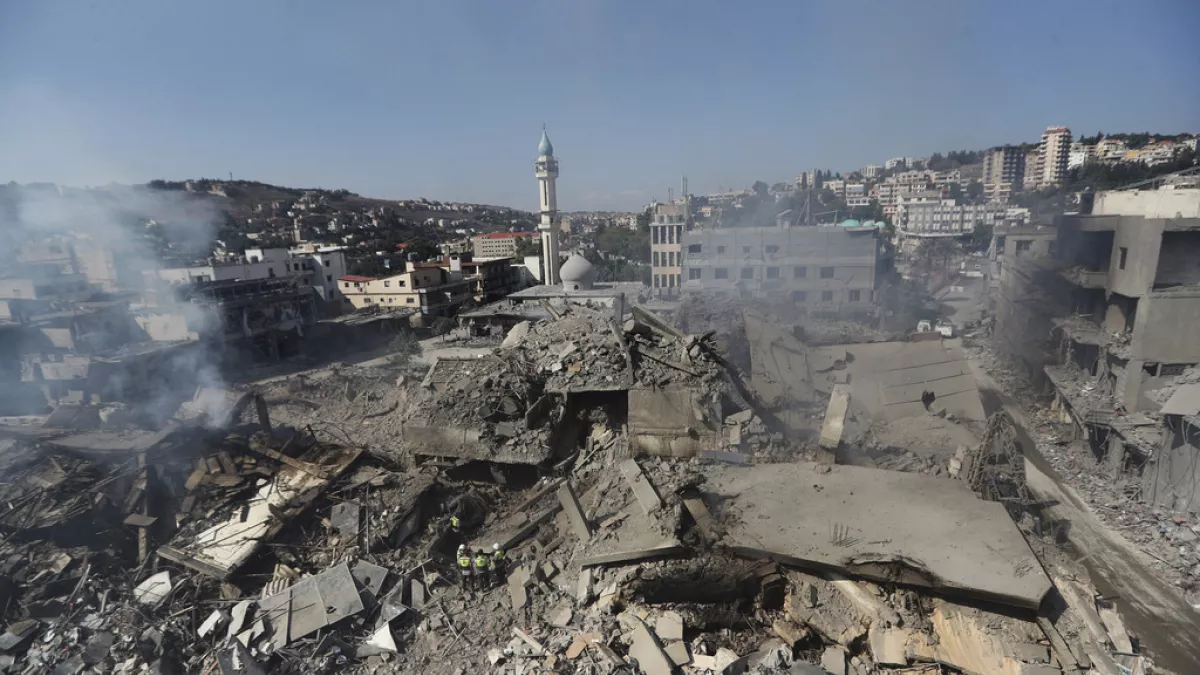Hezbollah indicated it was willing to consider ceasefire proposals in the face of the latest escalation with Israel but does not believe that change in the United States presidency by Barack Obama will shift the tack of diplomacy in the region. Hezbollah Member of Parliament Ibrahim al-Moussawi said he was guardedly hopeful for any peace initiative but added that Hezbollah does not believe that American policy could change dramatically since Donald Trump’s election win because US support for Israel did not even flinch since the 1979 Islamic Revolution in Iran.
US Efforts to Negotiate a Ceasefire Falter
Israel and Hezbollah have been restlessly in fire for the last year, with particular escalation in the last week of September. Against this backdrop, the diplomatic efforts of the United States to achieve a ceasefire between both sides were thwarted last week when the United States shifted its focus to the presidential election. Its previously proffered proposal for a 60-day truce with the sound words of the United States could not take off; this makes Hezbollah somewhat circumspect about similar efforts expected to take place under the renewed administration of Trump.
Hezbollah’s Response to Mounting Death Toll and Devastation
The losses from the past surges are apocalyptic. According to Lebanese officials, there have been over 3,000 dead since last October 2023, and the damage was widespread throughout Lebanon, particularly in Shi’ite-dominated areas in the south, eastern provinces, and southern Beirut. Al-Moussawi lashed out against the destruction, accusing the US as well of propping up Israel’s attack operations. “America is a full partner in what’s happening because they have the power to exercise influence to stop this destruction,” he said, lamenting the lack of international accountability for Israel.
New Envoy Suggested for Peace Talks
Lebanese-American businessman Massad Boulos- who is the father-in-law of one of Trump’s daughters, Tiffany-surfaced as a proposed envoy to help facilitate negotiations with Lebanon during the worsening conflict. “The nature of Trump’s visit to the region,” as Lebanese broadcaster Al Jadeed described it, “has translated into an attempt to bring the conflict to an end before his presidency officially starts next January.” However, neither the Trump team nor direct quotes have been issued from Boulos regarding his potential role.
Heavy fighting has intensified, and casualties have mounted.d
Israel’s military campaign has gained momentum in southern Lebanon with the reporting of an attack on an army checkpoint near Sidon on Thursday. An airstrike targeted a car at the checkpoint, reportedly killing three people, injuring three Lebanese soldiers, and lightly wounding four UN peacekeepers. According to a Reuters journalist at the scene, a bus of UN peacekeepers stationed nearby took some damage.
The UN peacekeeping force, UNIFIL, reported that five new peacekeepers were injured from the attack and received medical care on the spot. The killing is causing fears of not only security risks to peacekeepers but also humanitarian implications for local communities because strikes are ongoing near civilian infrastructure and crucial infrastructure.
At Risk: Cultural Heritage Sites
Besides human victims, Lebanon’s cultural heritage sites are also at risk. Just yesterday, an airstrike by Israel also destroyed a 19th-century Ottoman-era building near the UNESCO-listed temples in Baalbek, which are part of a World Heritage Site that includes Greco-Roman and Phoenician temples. The strike targeted the stone part of an empty building in the historic district where tourists usually flock, said Governor Bachir Khodr. Their condition is terrible,” Atef Chaar said of the dunes. Although the temples themselves have not been damaged, fears that further strikes may be launched continue to grip as the ongoing battle rages near some of Lebanon’s most important cultural icons.
The situation remains precarious, and part of the concern is that more casualties and demolition might occur if the diplomatic efforts fail to move in the right direction once again because Lebanese officials and humanitarian organizations have been calling for an immediate cessation of hostilities















